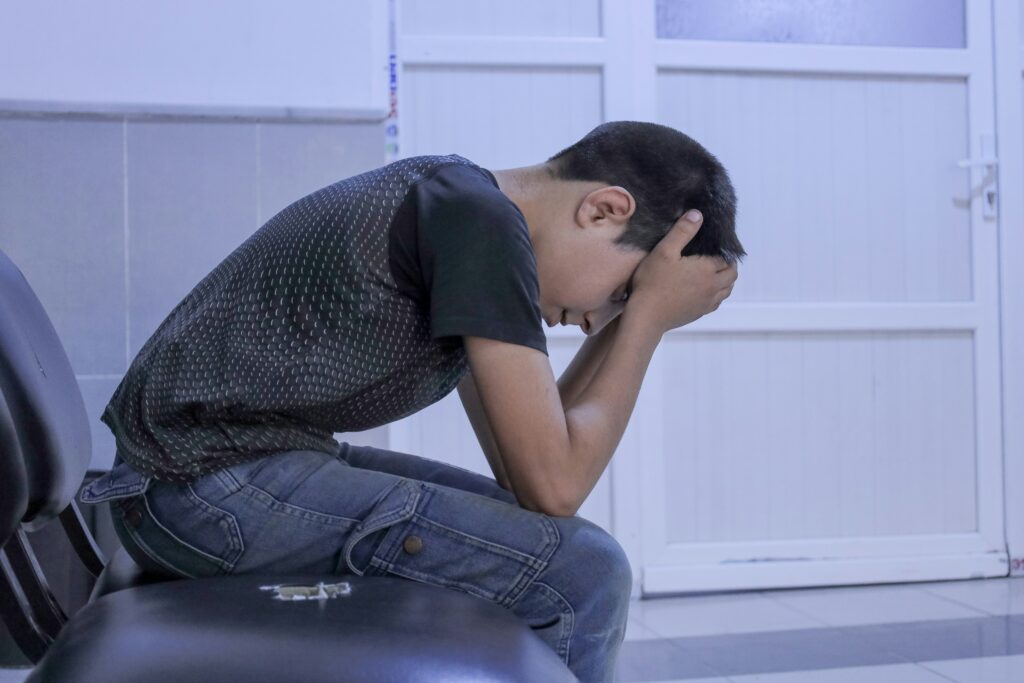At Educate Excellence, we are aware that learning occurs most effectively when kids experience safety, worth, and self-assurance. However, bullying might interfere with that for a lot of students. Bullying, whether it occurs in person or online, can negatively affect a child’s confidence, happiness, and academic performance and make school seem like a challenging place. This blog will examine the definition of bullying, how to identify it, and—above all—how to deal with it constructively and healthily. This advice is intended for students of all ages, from primary to secondary school, and parents and other caretakers who wish to assist them.
What is Bullying?
Bullying is when someone hurts another person on purpose, more than once, and in a way that makes them feel upset, unsafe, or powerless. It can be:
- Physical – hitting, pushing, tripping
- Verbal – name-calling, teasing, threats
- Emotional – spreading rumours, leaving people out on purpose
- Cyberbullying means messages or posts on phones, games, or social media
It’s important to remember that bullying is not just “banter” or “a joke” if it makes someone feel upset or targeted. Everyone deserves to feel respected and included.
Handling Bullying in Primary School (Years 1–6)
Bullying can be especially difficult for younger kids. They could be unsure of how to explain the situation or fear that telling an adult will exacerbate it. The following actions can help you deal with bullying at this point:
Talk to a Trusted Adult
Encourage your child to voice any concerns they may have. They must understand that they are not alone, whether they are parents, teachers, tutors, or school assistants. Adults can intervene to assist with finding a safe and appropriate solution.
Use Calm, Confident Words
Teach your child to use clear words like:
-
- “Please stop. That’s not kind.”
- “I don’t like that. Leave me alone.”
- Practising these responses at home builds confidence in tricky situations.
Stick with Supportive Friends
Bullying often occurs when children are left alone. Your child should play with friends who make them feel happy and safe. At Educate Excellence, kids learn kindness, inclusivity, and teamwork.
Express Emotions in Healthy Ways
Kids can process their feelings through writing, sketching, or role-playing. By doing this, bullying is prevented from affecting their education and self-esteem.
Handling Bullying in Secondary School (Years 7–11)
Teenagers often face more complex situations, from peer pressure to online bullying. They may also feel more hesitant to speak up for fear of embarrassment or retaliation. Here’s how teens can take control of the situation:
Don’t Feed the Bully
If the bullying is online, avoid replying or reacting. Instead, block the person and take screenshots as evidence. Teens should report online abuse to a parent, school, or the app/platform involved.
Speak Up — Don’t Stay Silent
Secondary students may feel like they have to “deal with it” alone. Remind them that staying silent gives bullies more power. Talking to a teacher, head of year, or trusted adult can help stop it before it gets worse.
Know Your Rights
Every school in the UK has an anti-bullying policy. Students have a right to learn without being harassed or hurt. Educate Excellence tutors are trained to spot signs of bullying and provide support in a safe environment.
Build Inner Strength
Teenagers who understand their self-worth are less affected by unkind words. Encouraging hobbies, achievements, and positive friendships helps build a strong sense of identity and resilience.
What to Do If You See Someone Else Being Bullied
When kids in Year 2 or Year 10 see bullying, they can all do something about it. It has a significant impact to be an “upstander,” or someone who assists, as opposed to a “bystander,” or someone who observes.
-
- Inform a grownup, particularly if someone is in danger.
- If it’s safe, stand next to the victim; occasionally, simply saying, “Let’s go,” is helpful.
- Say something nice, such as “Are you okay?” or “You don’t deserve that.”
- Avoid making fun of or spreading rumours since this gives the bully more power.
At Educate Excellence, we inspire kids to be leaders of kindness and support one another.
The Emotional Effects of Bullying
It is not “just part of growing up” to bully someone. It may result in sadness, anxiety, low self-esteem, or a lack of drive for learning. Early intervention and support are so crucial. Signs like this should be taken carefully by parents and tutors.
-
- Behaviour changes (such as mood swings, irritability, or stillness)
- Avoiding social or educational settings
- Decline in focus or grades
- Headaches or trouble sleeping
Don’t be afraid to get help if bullying is having an impact on your child’s wellbeing or academic achievement. Academic mentoring and counselling are examples of professional support that can have a significant impact.
How Can Educate Excellence Help?
Our goal at Educate Excellence is to develop self-assured students in a secure, encouraging setting. We care for students’ mental health and welfare outside of the classroom.
-
- Our tutors provide a secure environment for students to communicate and develop trust.
- Encouragement, recognition, and attainable objectives help us increase confidence.
- We teach resilience, compassion, and polite speech.
We collaborate closely with parents to identify any indications of mental distress or bullying, and we remind students that seeking assistance is a show of strength rather than weakness. No child should be scared to speak up or attend school. Every kid may feel appreciated, included, and prepared to learn with the correct help. Bullying can have a deep and lasting impact, but it can be stopped. With awareness, support, and the courage to speak up, students of all ages can rise above unkindness and stay focused on what really matters — their learning, their happiness, and their future. If your child has been affected by bullying or is struggling with confidence at school, Educate Excellence is here to help. Our nurturing tutors are trained to support both academic success and emotional resilience, helping every learner thrive.

